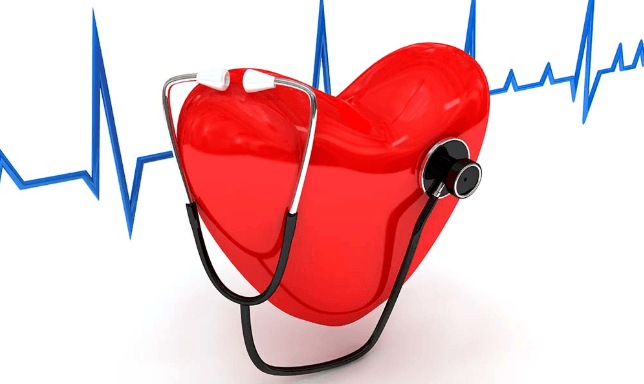This post contains references to products from one or more of our advertisers. We may receive a small commission at no extra cost to you should you make a purchase of any these products.
How Running Affects The Heart And Lungs
The heart is a muscle, and like all muscles, exercise – especially running – changes it.
So people naturally ask is running good for your heart and lungs?
Athletes tend to have enlarged hearts because the muscle is stronger and bigger from pumping more blood.
They also have lower resting heart rates, but that’s because the extra-strong heart has extra-strong beats.
In turn so much blood goes through your system at each pump that it doesn’t have to beat as often.
Running also increases lung capacity which is a good thing.
Should You Worry?
However certain people still believe that damage is being done where running and heart health is concerned.
This is based on the rare instances when a sudden cardiac death occurs at a marathon or other endurance event.
These sad stories make the news, but is there really anything to worry about?
Massachusetts General Hospital’s Cardiovascular Performance Program has reported that there were 59 cardiac events in half-marathons between 2000 and 2010.
Of these, 42 were deadly.
Many times, these deaths were because of undiagnosed genetic conditions like hypertrophic cardiomyopathy
This was especially true in runners who were under the age of 40.
There's More to The Story
There’s a theory that decades of regular running causes wear and tear on the heart and blood vessels.
Subsequently causing patches of fibrosis, which is another word for scarring.
This scarring prevents the heart from pumping properly, and atrial fibrillation can be the result.
It’s also been posited that the increased blood flowing through the coronary arteries can result in the formation of plaque.
Increased plaque clogs arteries and raises the risk of heart attacks.
Running is actually beneficial to the lungs.
Over time you will increase your lung capacity.
Which in turns allows you to take deeper breaths providing more oxygen to the muscles.
Certain things do need to be taken into account though.
If air quality is poor then running inside is better.
Also if you have asthma or
COPD
special precautions need to be taken into consideration.
Just remember the muscles you use to breath need to be trained like the muscles in your legs.
More Studies
One study on the subject was presented by Dr. Duck-chul Lee of the University of South Carolina.
He and his team analyzed more than 50,000 patients in their clinic between 1971 and 2002, including 14,000 dedicated runners.
After 15 years, the runners were found to be 19% less likely to have died than non-runners.
The caveat is that this benefit was only seen in people who ran less than 20 miles a week. People who ran more than this were statistically no different from non-runners.
The same week, cardiologist James O’Keefe and colleagues published a study in the Mayo Clinic Proceedings.
Their study indicated that too much running caused a number of deleterious
cardiac effects.
These included fibrosis, calcified arteries and arrhythmia.
This paper, in combination with Dr. Lee’s study, made the news.
And soon everybody was talking about how running was bad for you.
Take A Closer Look
In an editorial published in Heart in 2012, O’Keefe and Dr. Carl Lavie maintained that strenuous exercise should be kept to a minimum of 30 to 50 minutes per day.
Running “too far, too fast and for too many years” could be deadly.
Again, the news media picked up the story and ran with it.
There were disputes and doubts however. A paper about the dangers of running and heart health was published by a group in Copenhagen.
It was based on only two running-related deaths so their conclusions were debunked for lack of statistical evidence.
Lee’s 2012 presentation had never been peer reviewed.
In 2013, Dr. Thomas Weber responded to O’Keefe and Lavie’s Heart editorial, pointing out that their data had been adjusted.
Unfortunately they eliminated differences in BMI, blood pressure
and cholesterol levels.
Since running lowers these cardiac factors, their study was put into question.
The Good And The Bad
The academic arguing continues.
At this point, there are a few pieces of good news. Running has been shown to help improve conditions like diabetes, stroke, Alzheimer’s, cataracts and even kidney and breast cancer.
For people who run more than 40 miles a week it's different though.
There are indications that there are long-term changes to their hearts that could cause trouble.
Atrial fibrillation has indeed been linked to cumulative years of strenuous exercise.
Most likely because the left atrium is enlarged. This is the part of the heart where blood is stored after it returns from the lungs.
Subsequently increasing the risk for a stroke especially when high blood pressure and diabetes are present.

What’s more troubling is that there appears to be support for the idea that high doses of exercise leads to atherosclerosis or plaque in the arteries.
Which, in turn, results in a reduced supply of blood to the heart.
The reason for this correlation is unclear, and mitigating factors unrelated to running are likely involved.
More study needs to be done to answer the question: Is running good for your heart and lungs.
It’s entirely possible that the incidence of cardiac events is due to pre-existing conditions and running played no part.
Nobody has come out yet to tell people to stop running. As with all things take it in moderation and listen to your body.
Enjoy your running and take needed precautions to ensure that your heart and lungs stay healthy.